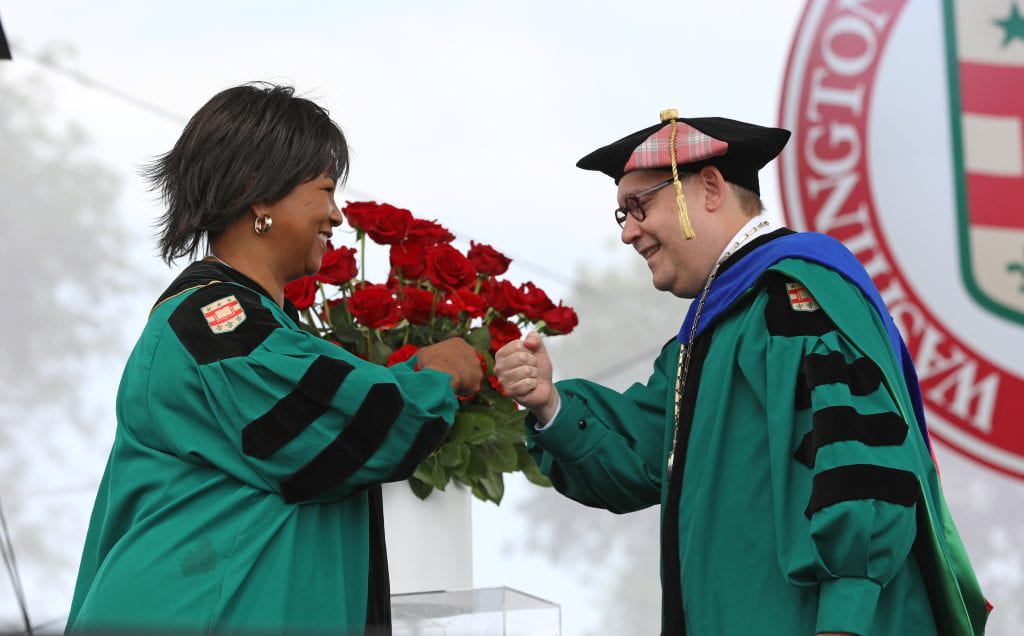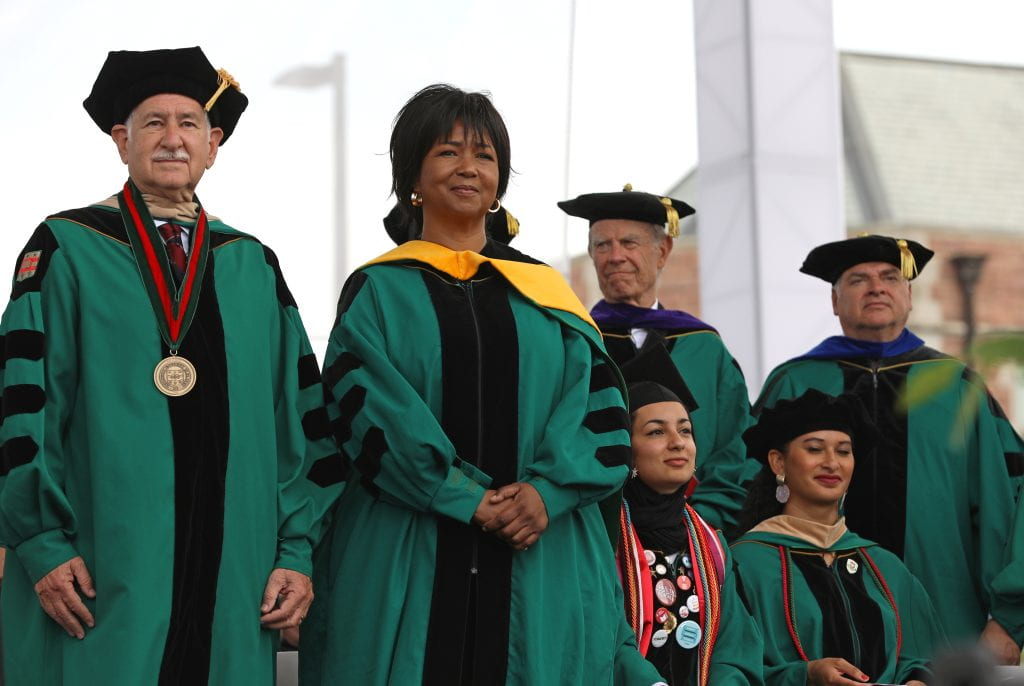When Mae C. Jemison, MD, was a NASA astronaut aboard the space shuttle Endeavour in 1992, she broke more than the sound barrier. She became the first woman of color to travel into space. Jemison received an honorary doctor of science degree in 2022.

Today, Dr. Jemison, a physician, engineer, author, dancer, educator, entrepreneur, futurist and former Peace Corps medical officer, is leading an initiative to ensure the capabilities for human interstellar travel exist within the next century.
Dr. Jemison was born in Alabama and grew up in Chicago, the youngest of three children. She credits her late parents, Charlie, a carpenter and maintenance supervisor, and Dorothy, an elementary school teacher in the Chicago Public Schools, with encouraging her to think critically and to explore her interest in both the arts and the sciences.
At age 16, Dr. Jemison entered Stanford University, where she earned a bachelor of science degree in chemical engineering and fulfilled the requirements for a bachelor of arts in African and Afro-American studies in 1977.
She then attended medical school at Cornell University and earned a doctor of medicine degree in 1981. During medical school, she volunteered in Kenya and a Cambodian refugee camp in Thailand. After completing a medical internship, she volunteered with the Peace Corps as a medical officer in Liberia and Sierra Leone from 1983 until 1985, before working as a general practice physician in Los Angeles.
Growing up during the Apollo era of the 1960s and 1970s, Dr. Jemison always had a strong desire for space travel. The moon landings, science fiction books and the TV series Star Trek fueled that passion.
Pursuing a dream since childhood, she applied for and was admitted into NASA’s astronaut training program in 1987, eventually becoming the first woman of color astronaut.
She was a science mission specialist for NASA’s space shuttle Endeavour, STS-47 Spacelab, in September 1992. During the eight-day flight that orbited the Earth 127 times, she performed experiments in material science, life sciences and human adaptation to weightlessness and was a co-investigator on a bone cell research experiment.
After leaving NASA in 1993, she started the Jemison Group Inc., a technology consulting firm integrating critical socio-cultural issues into the design of engineering and science projects.

Dr. Jemison now leads 100 Year Starship (100YSS), a bold, far-reaching nonprofit initiative to assure the capabilities exist for human travel to another star within the next 100 years.
Dr. Jemison led a team that won a competitive seed grant in 2012 from the U.S. Defense Advanced Research Projects Agency and NASA that helped launch 100YSS.
She is building a multifaceted global community to foster the cultural, scientific, social and technical commitment, support and financial framework to accomplish the “audacious” 100YSS vision of interstellar travel.
In 1994, she founded the Dorothy Jemison Foundation for Excellence, which focuses on building critical thinking skills, experiential teaching methods and science literacy. Through the foundation, she launched an international science camp, The Earth We Share, to engage youth in hands-on, interdisciplinary STEM education.
In addition to serving as the Bayer Corp. national science literacy ambassador, she was a host for National Geographic’s One Strange Rock TV documentary and the space operations adviser for its global miniseries Mars.
A member of the National Academy of Medicine, she has been inducted into the National Women’s Hall of Fame and the International Space Hall of Fame, among many other honors.
Dr. Jemison, who lives in Houston, Texas, is the author of several children’s books, including Find Where the Wind Goes: Moments From My Life, and was the first real astronaut to appear on TV’s Star Trek: The Next Generation.
Washington University has welcomed Dr. Jemison to campus two other times. In 2005, she delivered an Assembly Series lecture, “Exploring the Frontiers of Science and Human Potential,” and in 2015, she participated in Engineers Week sponsored by the McKelvey School of Engineering.